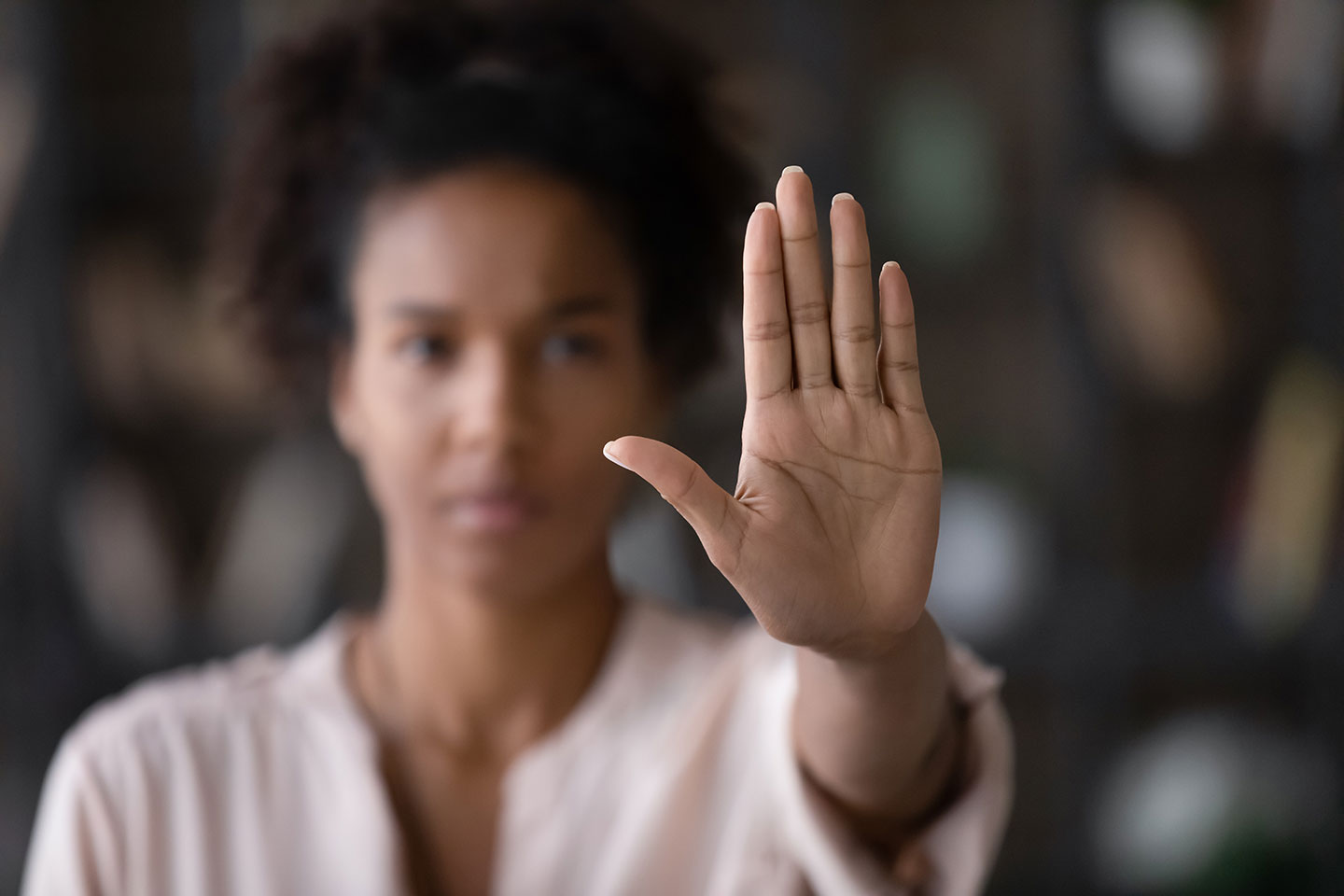The Role of Law Enforcement in Domestic Violence Cases
Survivors of domestic violence do not fit one description. Although many people picture a quiet, younger female when they hear the term “domestic violence survivor,” anyone can suffer abuse at the hands of a spouse, dating partner, roommate, or family member. Additionally, domestic violence can occur in same-sex or LGBTQ+ relationships—survivors can be of any age, gender, sexual orientation, race, ethnicity, or socioeconomic status. However, most survivors share at least one attribute in common: A fear of reporting the abuse and suffering retribution at the hands of their abuser. If you feel trapped in an unhealthy or dangerous relationship in King County, it’s essential to recognize that you are never alone in your struggle. Even though your abuser may have isolated you from loved ones, family members, and friends, you can trust that the compassionate and trusted attorneys at the Hemmat Law Group are just a phone call away. Once you contact us, you can trust that we will get to work helping you secure the legal protection you need to feel safe once again. We will assess the specifics of your situation and help you identify the most strategic path forward. For instance, we can petition the court to issue a Domestic Violence Protection Order (DVPO) to prevent your abuser from contacting or harassing you while you take the necessary steps to dissolve your marriage or escape from the relationship. This post will explore the legal process for seeking and securing a DVPO in the Seattle area, with an emphasis on how law enforcement plays into these steps.
What Domestic Violence Looks Like Under Washington Laws
First, it’s important to gain a better understanding of what actions constitute domestic violence in Washington State. Unfortunately, many survivors assume that their experiences are not “serious” enough to warrant legal protection under state laws. Although domestic violence does refer to situations in which an abuser subjects an intimate partner to physical harm, the term encompasses far more behaviors and activities beyond physical contact. The Washington State Coalition Against Domestic Violence (WSCADV) defines domestic abuse as “a pattern of behavior that one person uses to gain power over the other. These behaviors can include isolation from friends and family, emotional abuse, monitoring, controlling someone’s finances, and physical or sexual assault.” Under this broader definition, any person who experiences a loss of independence or autonomy because of the perpetrator’s attempts to isolate, control, or deprive them of their freedom can seek a restraining order (also known as a protective order) against the abuser. Even if your abuser has never caused you physical harm, their manipulative behaviors (i.e., monitoring your location at all times, preventing you from accessing your bank account, verbally insulting you, etc.) can subject you to trauma and cause you significant emotional harm.
How Domestic Violence Protection Orders Work
Washington State is among the most vocal advocates of protecting the rights of domestic violence survivors in the country. Under a newly streamlined system, individuals can use one form to petition the court for a protective order. In previous years, a petitioner had to locate the most appropriate form to suit their situation (i.e., would a stalking protection order or an antiharassment protection order be more appropriate for their needs?), making the process cumbersome, confusing, and intimidating. Now, anyone who wants court-issued protection from an abuser may complete one form and indicate the type of protective order they seek. Survivors of domestic violence often find that a Domestic Violence Protection Order (DVPO) best addresses their concerns. Let’s take a look at how the petitioning process typically unfolds in Washington State.
Completing and Filing the DVPO Petition
Your first step is to locate the DVPO filing form to complete. You can find this form online or at the nearest District Court. This form will ask you to provide information about you and the abuser (called the “respondent”), as well as the types of protections you are seeking. If you have children, you can indicate that you are seeking to protect them from the abuser as well. It’s important to understand that you can enlist the guidance of a caring and skilled attorney to support you as you complete this form.

Notifying Law Enforcement With a LECIF
Next, you can locate and complete a Law Enforcement and Confidential Information Form (LECIF), available either online or at your local District Court. This document provides information about the person you are naming in the DVPO petition (your abuser). Essentially, this document serves as a notice to law enforcement that you are seeking to protect yourself (and any children) from the respondent. Once the court issues the DVPO, law enforcement will have documentation that establishes you as the protected person and the respondent as legally prohibited from contacting, harassing, or engaging with you in any way.
Determining Whether a Temporary Order is Appropriate
If you believe that you (and your children) are in immediate danger of harm at the hands of the respondent, you can request that the court grant you a temporary order to keep you safe during the 14 days between filing the DVPO petition and the hearing. If the judge issues a temporary order, the respondent must comply with all of the conditions (i.e., removal from a shared residence, prohibition from contacting you, etc.) or risk potential criminal penalties.
Serving the Respondent and Attending the Hearing
When the court receives your DVPO petition, it will schedule a hearing. You can ask the filing clerk to have law enforcement serve the respondent with a copy of the petition, especially if the order requires weapons surrender, transfer of child custody, or vacating a shared residence. During the hearing, you and the respondent will have the opportunity to express your views and concerns before the court. This experience can be intimidating and emotionally taxing for survivors of domestic violence, so consider working with an empathetic attorney who can empower you to move through this experience with the security and stability you need.

The Court Approves the DVPO Petition
Once the court approves the petition and issues the DVPO, the respondent must adhere to every term listed in the order. Any violation of the order’s terms will result in civil or even criminal penalties. If the final order is not permanent, the petitioner may petition the court to renew the order within 90 days of the order’s expiration.
Working With Law Enforcement During the DVPO Process
It’s helpful to understand how law enforcement works with the court, the petitioner, and the respondent in DVPO matters. Below are just a few examples of how law enforcement plays a role in helping you establish and enforce a DVPO order.
Police Reports as Evidence of Abuse
As you prepare your DVPO petition, you can use existing police reports to support your request for legal protection from the abuser. Many survivors of domestic violence, especially those who have suffered physical violence, have reported an altercation to law enforcement at some point. Or, perhaps concerned neighbors contacted the police to report an incident. You can request a copy of the police report to include with your DVPO petition as proof of your need for legal protection from a spouse, ex, or intimate partner who is jeopardizing your safety.
Having Law Enforcement Serve the DVPO Petition
When you file a completed DVPO petition with the court, the respondent must be served a copy of this document. Law enforcement officers can provide this service, as the respondent may react with outrage. Some orders require the respondent to surrender any firearms or dangerous weapons, which can trigger an outburst or protestation from the respondent. It’s best to rely on law enforcement officers to handle this situation with the composure and sensitivity it requires.
Reporting Violations to Law Enforcement
Once the DVPO is in effect, the respondent is legally required to abide by every term and condition of the order. Any violation of the order should be reported to law enforcement as soon as possible. For example, if the DVPO prohibits the respondent from contacting you in any way, any attempt to do so may constitute a violation of the order. Behaviors like commenting on your social media posts, texting you, or showing up at your workplace should be reported immediately to law enforcement. The officers will follow up on the violation, possibly place the respondent under arrest, or pursue potential criminal or contempt charges.
Protect Your Safety and Your Future, Starting Today
Those trapped in abusive relationships may feel a sense of hopelessness. It’s hard to imagine ever escaping from this situation and getting your life back. However, it is never too late to take action against an abuser. Reach out to a caring and understanding Seattle attorney who can provide you with the legal strategies and protections you need to feel safe once again.
The caring and knowledgeable attorneys at the Hemmat Law Group are committed to working with every client to understand their unique needs and concerns. We invite you to call our Seattle office today at (206) 682-5200 to discuss your options for obtaining a divorce, legal separation, or domestic violence protection order that will help to keep your future bright.
The Hemmat Law Group (HLG) was founded in 1994 by Steven Amir Hemmat, a former DOJ Trial Attorney. We specialize in family law, supporting victims of the legal system.
The Hemmat Law Group help good people in bad situations.
Our lawyers provide expert legal advice connected to protection orders, including in cases of domestic violence, stalking and neighbor disputes. Contact us today.













